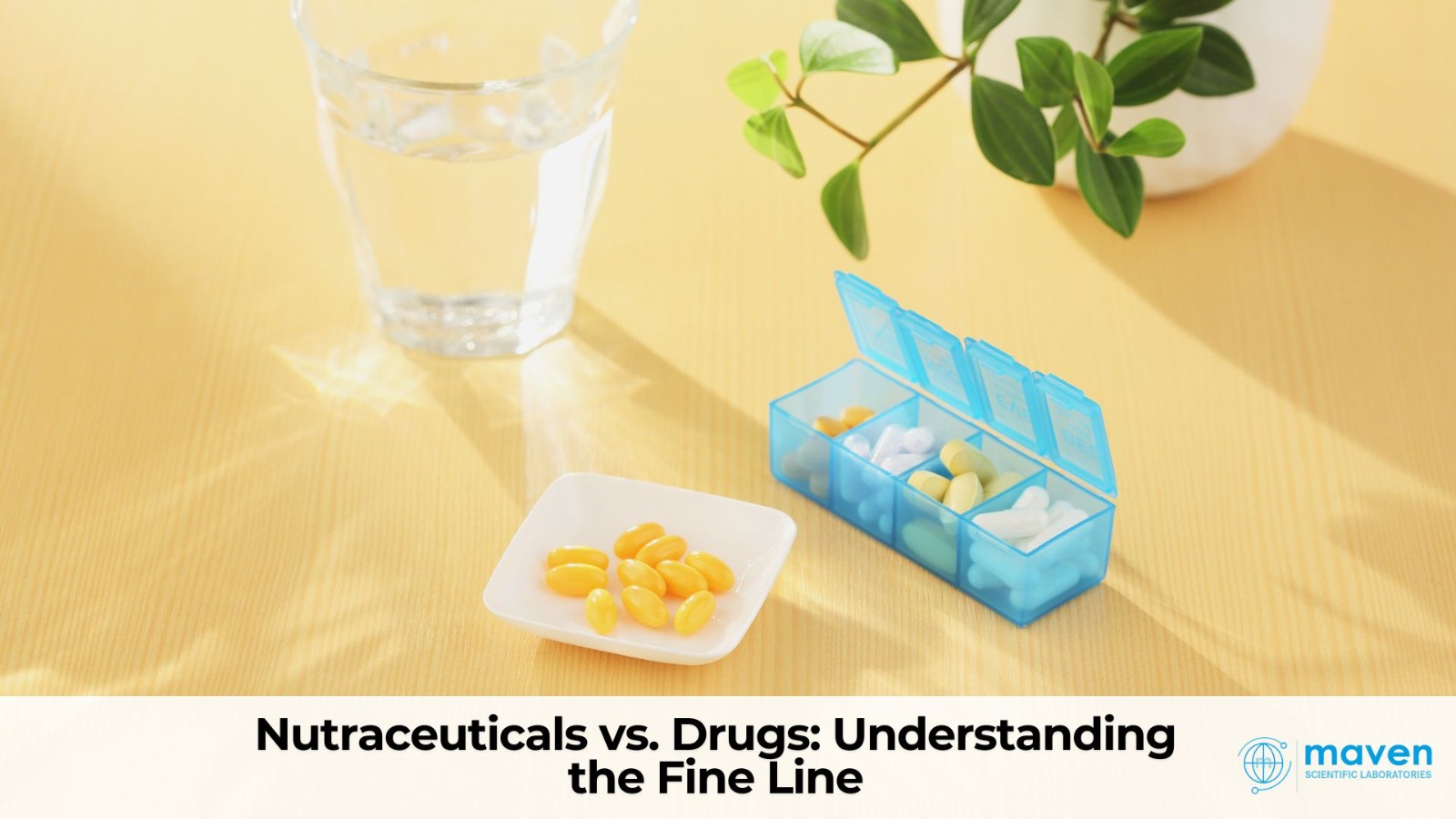
Nutraceuticals Vs. Drugs: Understanding The Fine Line
In today’s wellness-driven world, the lines between nutrition and medicine are becoming increasingly blurred. Consumers, empowered with health information and driven by the desire to prevent illness naturally, are turning to products like nutraceuticals—substances derived from food sources that offer additional health benefits beyond basic nutrition. But as these products gain ground, a fundamental question arises: Where do we draw the line between a drug and a nutraceutical?
What Are Nutraceuticals?
The term “nutraceutical”, coined by Dr. Stephen DeFelice in 1989, merges “nutrition” and “pharmaceutical”. It broadly refers to food-derived products that provide medical or health benefits, including the prevention and/or treatment of diseases.
Nutraceuticals can take various forms:
- Dietary supplements (e.g., vitamins, minerals, amino acids)
- Functional foods (e.g., fortified cereals or beverages)
- Medicinal foods (prescribed for specific dietary needs)
- Herbal products (e.g., ginseng, turmeric, green tea extracts)
Common examples include omega-3 capsules, probiotics, turmeric (curcumin), and green tea extracts—all claiming to support health, reduce risk of chronic diseases, or enhance performance.
Drugs vs. Nutraceuticals: Key Differences
|
Aspect |
Drugs |
Nutraceuticals |
|
Purpose |
Treat/cure disease |
Promote health |
|
Regulation |
Strict (FDA, CDSCO) |
Lenient (FSSAI, etc.) |
|
Clinical Trials |
Mandatory |
Rare |
|
Prescription |
Rx/OTC |
Mostly OTC |
|
Claims |
Must be proven |
Limited, less strict |
The Overlap & Challenges
Some nutraceuticals have drug-like effects (e.g., curcumin for inflammation, omega-3 for heart health). Consumers may use them as alternatives to medicines, risking delays in proper treatment. Advances like nano-formulated supplements and personalized nutrition further blur the line.
Regulation: India & Global
- India: FSSAI regulates nutraceuticals as foods; strict rules on ingredients and claims.
- Global: USA (DSHEA), EU (EFSA), and Japan (FOSHU) have their own frameworks.
- Emerging Issues: Misuse and misleading claims have prompted calls for tighter regulation in India.
Risks
- Interactions with drugs
- Variable quality and potency
- Misleading claims and false security
The Road Ahead: Integration Over Competition
The future lies in integrating nutraceuticals and drugs:
- Evidence-based complementary medicine
- Pharma-nutra hybrids
- Tracking supplement use in health records
- Stronger clinical validation for nutraceuticals
As precision medicine and personalized nutrition advance, the synergy between drugs and nutraceuticals will transform healthcare from disease management to prevention and wellness.
Conclusion
The convergence of drugs and nutraceuticals is inevitable in the modern health landscape. As science advances and consumer preferences shift toward natural and preventive care, the regulatory frameworks, scientific backing, and professional oversight must evolve to keep pace. Nutraceuticals are not a replacement for drugs—but when appropriately integrated, they can be powerful allies in promoting health, preventing disease, and enhancing quality of life.







